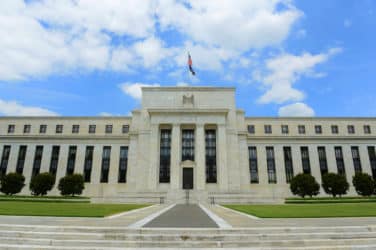
Banks will need to track pre-trade and post-trade compliance.
The Volcker Rule, which is now out for public comment, could severely restrict legitimate hedging activities employed by banks to manage counterparty risk.
By requiring banks to justify that their hedging is not simply a way to disguise proprietary trading, the Volcker Rule would impose significant costs in the way of reporting and compliance, which could create distortions in the method they manage their credit exposures, called credit value adjustments (CVAs).
The Volcker Rule, as proposed by federal banking regulators and the SEC, prohibits banking entities from engaging in prop trading, i.e., in trading for their own account.
The proposed rule, whose comment period expires on Jan. 13, 2012, implements exemptions for underwriting and market making-related activities. For each of these permitted activities, the proposed rule provides a number of requirements that must be met in order for a banking entity to rely on the applicable exemption.
“The Volcker Rule imposes onerous obligations where firms are presumed guilty until proven innocent,” Joshua Sutton, vice president at Sapient Global Markets, told Markets Media.
As a result, firms need to invest in programs from pre- and post-trade to demonstrate compliance with the Volcker Rule, and to demonstrate that profits from hedging aren’t due to proscribed prop trading activity.
“This is difficult to quantify and justify in the case of CVA hedging which, while a hedge, can significantly impact the company’s bottom line,” said Sutton.
CVA, a measure that adjusts the risk-free value of an instrument to incorporate counterparty credit risk, is a complex challenge for a trading desk to quantify and mange due to its cross-asset and credit contingent nature, according to a white paper by Algorithmics.
Following the credit crisis, many firms began to centralize the pricing and management of counterparty credit risk in the form of a CVA trading desk that acts as an internal service for quantifying credit risk across individual business lines and using CVA to manage this risk across the entire institution, according to Algorithmics.
Existing trading systems are ill-suited to CVA measurement, as they often process only a subset of all the trades with counterparty, lack the ability to model netting and collateral agreements, and lack the analytical capability to calculate sensitivities which are required for CVA, said Algorithmics.
The complex sites of managing CVAs will become magnified by the Volcker Rule, which will in turn require significant IT investment on the part of banks.
“Trading solutions will require both pre-trade compliance and post-trade review to dynamically monitor transactions throughout the day,” said Sutton.
Compliance and reporting will eventually build up to real-time pre-trade reviews and real-time reporting, he said.
Sapient Global Markets has a “defined process” for addressing Volcker Rule compliance, the deadline for which is currently July 2012, he said.






